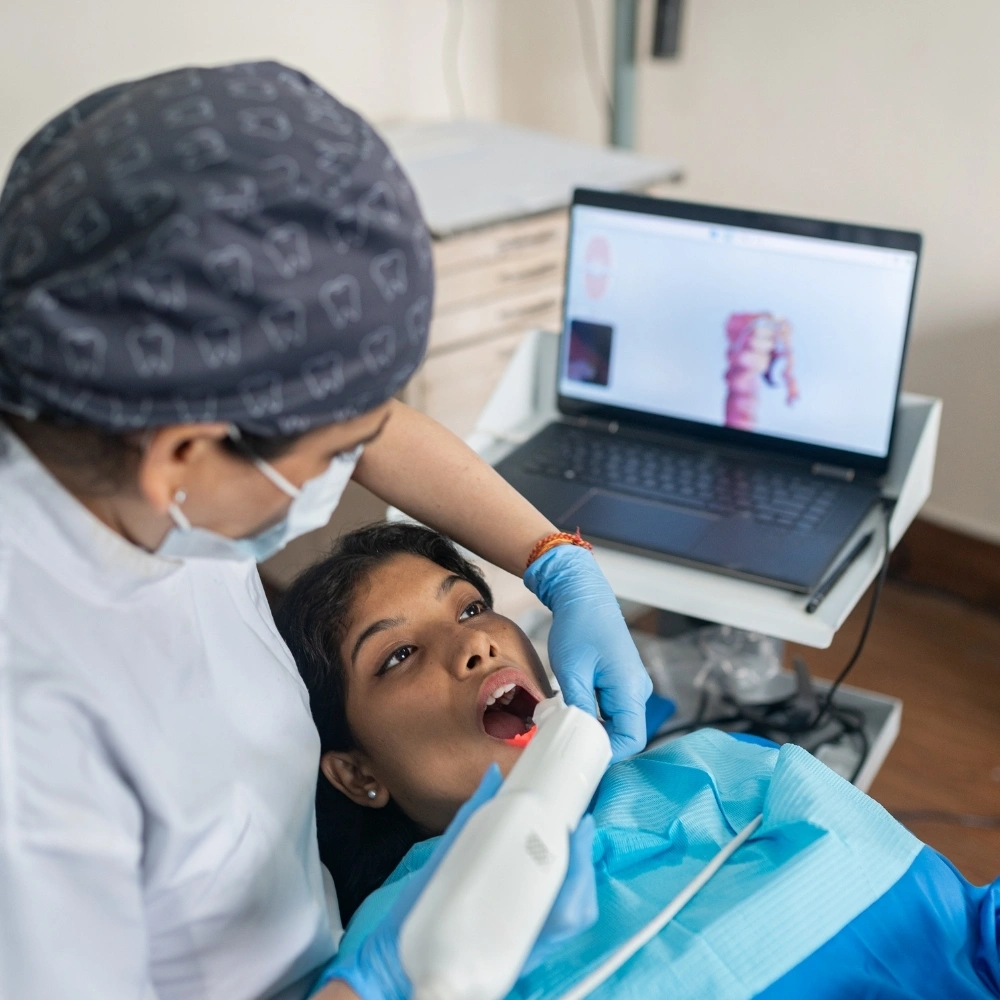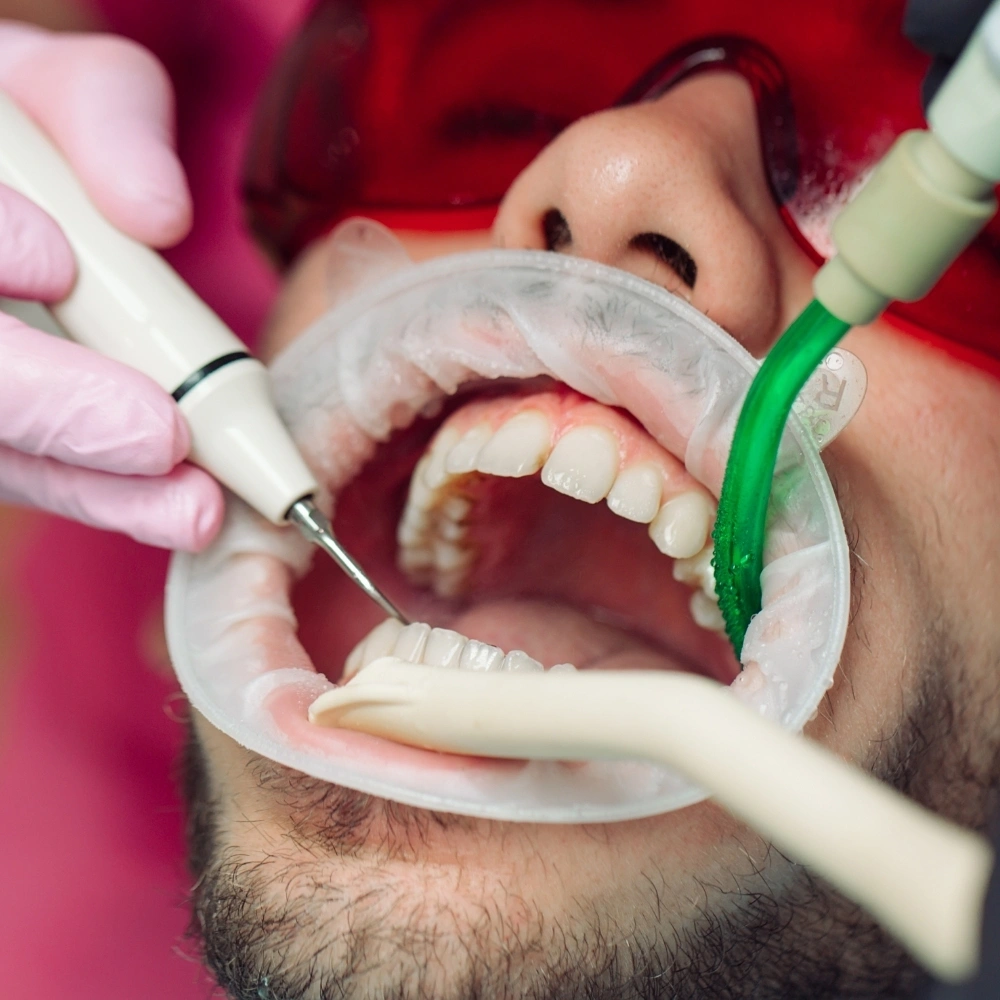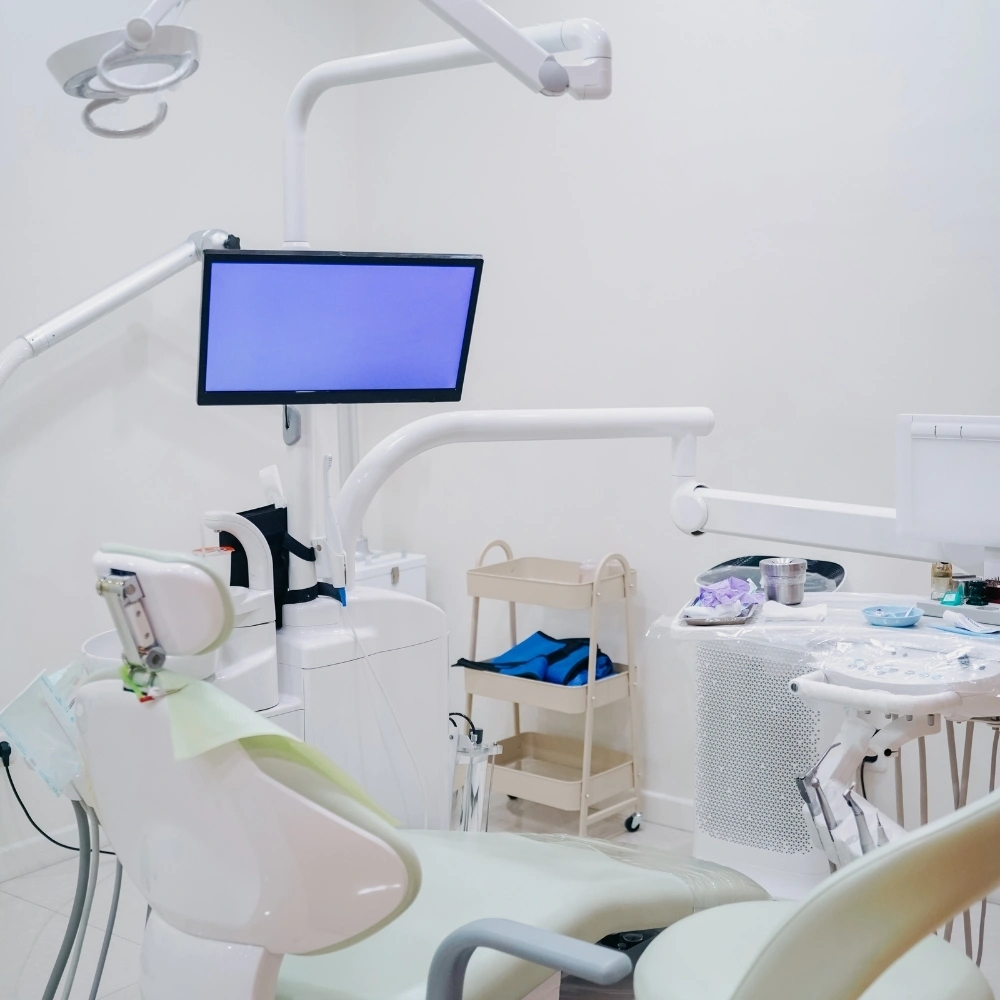Oral Surgery Guelph
When your mouth needs more than a regular cleaning or filling, you want someone who knows what they’re doing. At Hanlon Creek Dental in Guelph, our oral surgery services help patients get back to eating, smiling, and living without pain or worry.
Think about the last time you had a really bad toothache. You know that feeling when even drinking cold water makes you wince? Or maybe you’ve been putting off getting your wisdom teeth checked because you’re nervous about what the dentist might say. These are the moments when having an experienced dentist makes all the difference.
What Makes Oral Surgery Different
Regular dentistry takes care of cleanings, cavities, and routine checkups. Oral surgery goes deeper. We’re talking about procedures that require more skill, more planning, and often more healing time. But here’s the thing – when you need oral surgery, you really need it. Waiting usually makes things worse.
An experienced dentist handles the complex stuff. We remove teeth that won’t come out easily. We fix jaw problems that make it hard to chew. We work on infections that antibiotics can’t touch. And we do it all right here in Guelph, so you don’t have to drive to Toronto or Hamilton for treatment.
Why Patients Choose Hanlon Creek Dental for Oral Surgery
Location matters when you’re dealing with oral surgery. After a procedure, the last thing you want is a long drive home. Being located right in Guelph means you can get the care you need close to home. Plus, our team speaks English, French, Spanish, Portuguese, Arabic, and Vietnamese – so you can talk about your concerns in whatever language feels most comfortable.
Our office uses modern equipment that makes procedures faster and more comfortable. We’re not talking about the dental offices your parents remember. Today’s oral surgery uses techniques that reduce swelling, speed up healing, and make the whole experience less stressful.
But the real reason patients trust us? We treat people like family members. When your teen needs wisdom teeth out, we explain everything to both of you. When grandma needs a tooth extracted, we take the time she needs to feel comfortable. Every patient gets the same careful attention, whether it’s a simple extraction or something more complex.

Wisdom Teeth Extractions: Getting Ahead of Problems
Let’s talk about wisdom teeth – those four molars that usually show up between ages 17 and 25. Most people don’t have enough room in their mouth for these extra teeth. When they try to come in anyway, problems start.
You might notice your jaw feeling sore or tight. Maybe your other teeth start crowding together. Sometimes wisdom teeth only come partway through the gum, creating little pockets where food gets stuck and bacteria grow. This can lead to infections that make your whole face swell up.
The solution? Get them out before they cause bigger problems. Wisdom teeth extraction sounds scary, but it’s one of the most common oral surgery procedures we do. The younger you are when you have it done, the easier the healing process tends to be.
Here’s what happens during a wisdom teeth extraction at our Guelph clinic. First, we take X-rays to see exactly where your teeth are positioned. Some wisdom teeth are straight and easy to remove. Others are tilted or buried under the gum. The X-rays help us plan the best approach.
On the day of surgery, we make sure you’re completely comfortable. Most patients choose sedation, which means you’ll be relaxed and won’t remember much about the procedure. We remove the teeth carefully, clean the area thoroughly, and give you detailed instructions for healing.
Recovery usually takes about a week. You’ll want to stick to soft foods and avoid using straws (the suction can disturb the healing). Most people are back to their normal routine within a few days, though complete healing takes a bit longer.
Parents often ask when their teenager should have wisdom teeth evaluated. We usually recommend checking around age 16 or 17. That’s when we can see on X-rays whether there’s enough room for the teeth to come in properly. Getting ahead of problems is always easier than fixing them later.
Dental Restorations: Rebuilding What’s Been Lost
Sometimes oral surgery isn’t about removing teeth – it’s about saving them or replacing them. Dental restorations help when teeth are severely damaged, infected, or missing entirely.
Think about a tooth that’s been cracked in an accident or damaged by a deep cavity. A regular filling might not be enough. When the damage goes deep into the tooth’s nerve, we might need to do a procedure called an apicoectomy. This removes the infected tip of the tooth’s root while saving the rest of the tooth.
For teeth that can’t be saved, we look at replacement options. Dental implants are often the best choice for missing teeth. An implant is like an artificial tooth root that we place in your jawbone. Once it heals and integrates with your bone, we can attach a crown that looks and works just like your natural tooth.
The implant process takes several months from start to finish, but the results last for decades. Unlike dentures that can slip around, or bridges that require grinding down healthy teeth, implants stand on their own. You brush and floss them just like regular teeth.
Bone grafting is another restoration procedure we often do. When you lose a tooth, the bone that used to support it starts to shrink away. If you want an implant later, there might not be enough bone left to hold it securely. Bone grafting rebuilds that foundation, giving the implant something solid to anchor into.
These procedures might sound complex, but they’re routine for an experienced dentist. We’ve helped hundreds of Guelph patients rebuild their smiles and get back to eating the foods they love.
Advanced Surgical Procedures
Beyond wisdom teeth and basic extractions, oral surgery covers a wide range of procedures. Some patients need treatment for TMJ disorders – problems with the jaw joint that cause clicking, locking, or pain when you open and close your mouth.
Others come to us for treatment of oral pathology – unusual growths or lesions in the mouth that need to be examined and possibly removed. Early detection and treatment of these conditions can prevent more serious problems down the road.
We also handle more complex extractions, like removing impacted teeth or teeth with curved roots that make removal tricky. These cases require surgical skill and experience to complete safely and comfortably.


Pain Management and Comfort
Before any procedure, we talk about your comfort options. Local anesthesia numbs the area completely, so you won’t feel any pain during surgery. For patients who want to be more relaxed, we offer sedation options that help you feel calm and peaceful.
After surgery, we give you a detailed plan for managing any discomfort. This usually includes prescription pain medication for the first few days, plus instructions on using ice packs and keeping your head elevated. Most patients are surprised that their recovery is easier than they expected.
Preparing for Your Oral Surgery
Arrange for someone to drive you home, especially if you’re having sedation. Plan to take it easy for at least 24 hours after surgery. Stock up on soft foods like yogurt, soup, and smoothies. You’ll want to avoid anything hard, crunchy, or spicy for the first few days.
If you take medications regularly, ask us whether you should continue them before surgery. Some medications, especially blood thinners, might need to be adjusted. We’ll coordinate with your other doctors if needed.
The Healing Process
Swelling is normal and usually peaks around the third day, then starts going down. Ice packs help reduce swelling in the first 24 hours. After that, gentle heat can help increase blood flow and speed healing.
Follow your post-operative instructions carefully. Don’t smoke or use tobacco products – they slow healing significantly. Avoid vigorous rinsing or spitting for the first day. Eat soft foods and stay hydrated.
Most people can return to work or school within a few days, though you might want to avoid strenuous exercise for a week or so. We’ll schedule a follow-up appointment to check how you’re healing and remove any stitches if needed.


Technology Makes a Difference
Our surgical techniques have improved too. Minimally invasive approaches mean smaller incisions, less swelling, and faster healing. Better anesthesia options keep you comfortable throughout your procedure.
We also use advanced materials for things like bone grafts and sutures that dissolve on their own. These improvements might seem small, but they add up to a much better experience for patients.
Cost and Insurance
Most dental insurance plans cover medically necessary oral surgery. This usually includes wisdom teeth removal, extractions due to infection or trauma, and some types of restorative procedures. We work with all major insurance providers and can help you understand your benefits.
For patients without insurance, we offer payment plans that make treatment more affordable. Don’t let cost concerns keep you from getting the care you need – we’ll work with you to find a solution that fits your budget.
Why Choose Local Care in Guelph
Being part of the Guelph community also means we understand the needs of local families. We know which schools have upcoming events that your teen might want to schedule around. We understand the work schedules of local employers. These details help us plan your treatment at a time that works for your life.
Getting Started
If you think you might need oral surgery, the first step is a consultation. We’ll examine your mouth, review any X-rays, and discuss your symptoms and concerns. Together, we’ll develop a treatment plan that addresses your needs.
Some procedures can be scheduled right away. Others might need some planning time to coordinate with your schedule or allow for insurance approval. Either way, we’ll keep you informed every step of the way.
You can reach Hanlon Creek Dental at (548) 855-0283 or email us at [email protected]. We’re located right here in Guelph, with office hours that work for busy families. Monday through Thursday we’re open until 5 PM, with extended hours until 7 PM on Wednesdays. Friday appointments are available until 3 PM, and we offer Saturday appointments on selected dates.
Don’t let oral health problems control your life. Whether you’re dealing with wisdom teeth, need a complex extraction, or want to explore options for replacing missing teeth, our oral surgery services can help you get back to feeling like yourself again. The sooner you address dental problems, the easier they are to fix – and the faster you can get back to enjoying all the foods and activities you love.
Our Oral Surgery Services
Wisdom Teeth Extractions
We gently remove wisdom teeth that cause crowding, pain, or infection to help maintain your comfort and long-term oral health.
